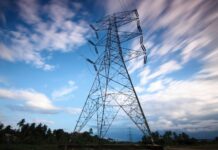The UK has produced more than 1 trillion kilowatt hours (kWh) of power in the last 50 years and is projected to generate another trillion over the next five years.
That’s according to new analysis from the National Grid, which highlights the UK’s progress in producing renewable energy. When reporting began in 1970, renewables made up less than 2% of the total energy mix, most of which came from pumped hydro.
Last month, the report attributed 46% of Britain’s energy generation to both nuclear and renewable energies, with wind being the biggest contributor.
April marked another major energy milestone for the UK: on 10 April, only 0.1% of the UK’s electricity was generated from coal. This translates to a rate of 33g of CO2e per kWh and highlights the UK’s shift away from coal use. At the end of March, the West Burton A coal power plant in Nottingham shut down, leaving only two active plants in the UK – both of which are set to close before October 2024.
The future of the UK’s energy mix
The National Grid has forecasted that the UK will be able to generate its next trillion kWh of renewable electricity in just five years. Although, some have warned that this prediction is conditional. National Grid Ventures’ interim president, Ben Wilson, cautioned that this can only happen with the right policies and frameworks in place.
Some forms of renewables, such as hydrogen, are reported to be at a ‘critical juncture’ for the UK, calling to attention the need for more sustainable forms of energy.
“Accelerating the delivery of renewable energy must continue to be a priority for a cleaner, more secure and more affordable energy future for everyone… we are committed to working with government and our partners to make it a reality,” Wilson said.
The National Grid report comes just days after the UK announced that, for the first time, wind farms had generated more electricity than gas for the first quarter of 2023. Wind power made up 32.4% of the UK’s energy mix during quarter one, with gas trailing behind at 31.7%, according to researchers at Imperial College London.
“There are still many hurdles to reaching a completely fossil fuel-free grid”, said Dr Iain Staffell, lead researcher of the report. “But wind out supplying gas for the first time is a genuine milestone event, and shows what can be achieved when governments create a good environment for investors in clean technology.”













